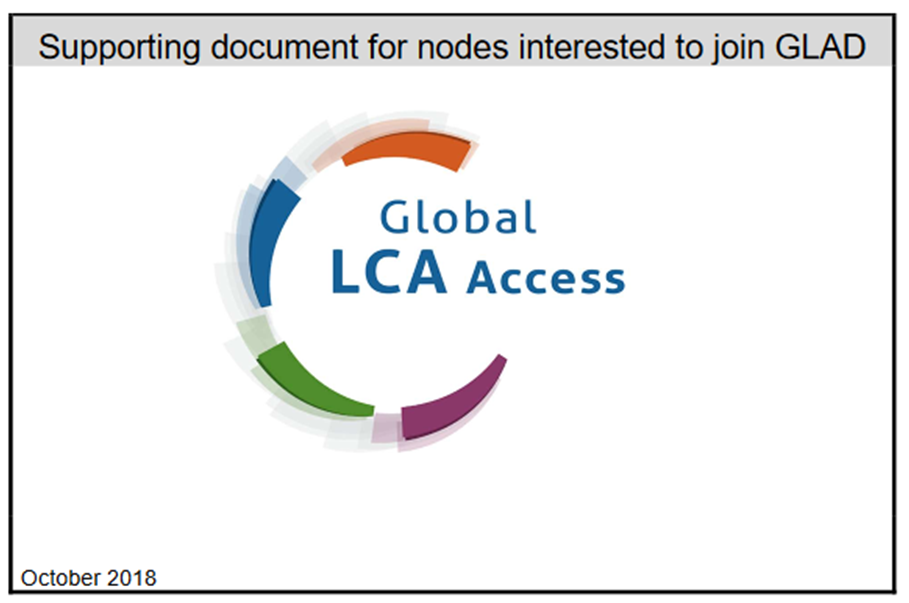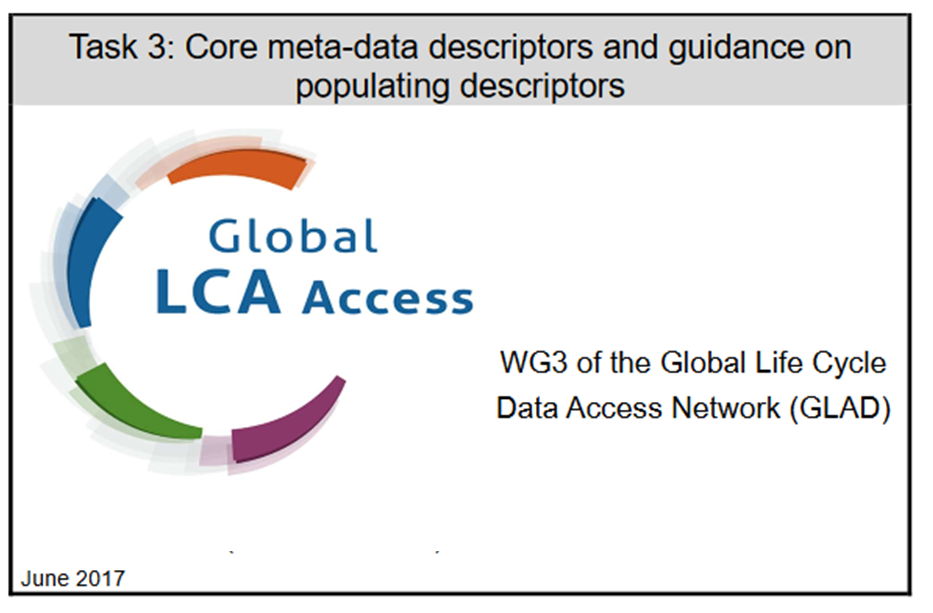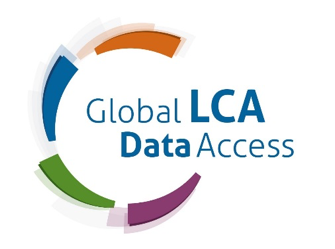This functionality is based on key metadata descriptors that will be required from datasets to be connected to GLAD in order to allow for interoperability between them – as well as a global mapping of elementary flows’ nomenclature. UN Environment serves as the Secretariat of the GLAD network, with representatives from 14 governments in the Steering Committee (SC). Among those representatives, the European Commission is represented by DG ENV, at the SC level, and by JRC in the technical support and development (see the figure below). The ILCD format , officially used in few EC policies, is one of the main formats allowed in the GLAD framework The technical developments around the GLAD platform covers the following areas: "Network Architecture and Technology", which defined the specifications of the IT environment required for the network; "Nomenclature", delivering a global elementary flow mapping file for Life Cycle Inventory datasets; "Metadata descriptors", delivering a basic list of metadata descriptors to facilitate interoperability and the assessment of "fitness for purpose" by users, as well as advanced recommendations on how interoperability and assessment of fitness for purpose can be enhanced in the future. The final report of the working group can be accessed here . Data from ELCD database are now part of the data available through GLAD.The next step is to allow the EF data to be connected to the GLAD Network. Go to the UNEP-GLAD project pageInvolvement of the JRC in GLAD’s activitiesThe JRC is involved in several technical development, in preparation and maintenance of nomenclature mapping files, providing and checking meta-data and format specifications, supporting the Steering Committee on behalf of DG ENV and adapting internal (EC) software to deal with GLAD platform.
JRC is actively involved in GLAD Working Group on Nomenclature, which is a technical working group supporting the Life Cycle Initiative for GLAD
aimed at developing a common system to map the nomenclature lists for elementary flows (EFs) between databases connected to GLAD. |  
|

